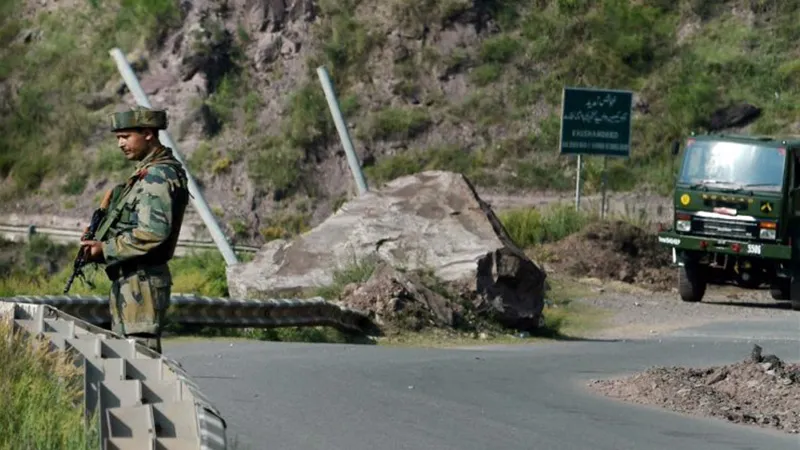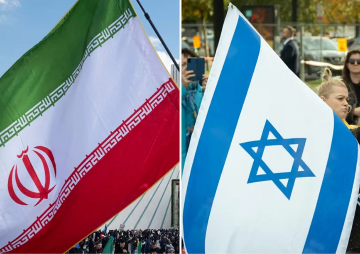
The Indian retaliation for the Uri militant strike has shone light on its Special Forces, an entity which usually acts in stealth and silence. They are not orthodox Special Forces of the American kind, but are essentially para commandos, operating as "super" infantry and being employed for missions that normal infantry may balk at. They have been used in Jammu and Kashmir in tackling highly trained militants who have operated in the Rajwar heights or the Pir Panjal and their actions are a legend. Since 1993, they have also played a role in cross-LoC raids of the type that were conducted on Sunday night. However, given their limitations, their operations can only be on a shallow front or within our own territory. For true Special Operations, India requires a completely different kind of a force.
In 2011, in the wake of Osama bin Laden’s killing, the then army chief General V. K. Singh’s claimed that India could launch SF operations — of the kind the United States did to kill Osama bin Laden. That was more braggadocio than reality. India has lacked the capacity for longer range raids which could strike deep into Pakistan and which may require helicopter night-flying capability, satellite and human intelligence, surveillance and reconnaissance capacity.
However, the current SF is a useful one in conducting the kind of operation they did along the LoC to retaliate against the militant strike in Uri on September 18. In the case of a formal military incursion, the problem is coping with escalation control considering that if then incursion is too successful, it could compel Pakistan to respond through nuclear means. In any case, military incursions are a blunt instrument, as they have proved in the case of Israel which has mounted several actions over the years against the Hamas in Gaza and Hezbollah in Lebanon, but not managed to reduce their capacity to harm Israel.
As far as diplomacy or financial sanctions are concerned India lacks any significant clout with Pakistan, all it can do is to try and assemble a coalition to do the needful; such a strategy comes undone because both the US and China, two critical linchpins, have important stakes in Pakistan. India has therefore taken recourse to negative diplomacy by boycotting SAARC, threatening to abrogate the Indus Waters Treaty, and withdrawing MFN status to Islamabad.
But true Special Operations conducted by Special Forces require another kind of organisation, leadership and equipment. In fact there are only three or four countries which have displayed an ability to launch high-risk, virtually suicidal operations, in modern times — Israel, the US, UK and Russia. Their forces conduct missions which have the combination of political direction, politico-military-intelligence integration and specialised technology.
Special Operations Forces (SOF) work is a full-time job requiring specialised language and cultural skills which cannot be acquired if you are also deployed in routine military duties. In recent times, for example, US and UK SOFs have been operating deep in the Islamic State-held territories and they can only do so if they have the ability to blend deep into the hostile landscape.
A great deal of technology is needed to launch such raids and the US with its enormous constellation of surveillance, Elint and Comint satellites has a great advantage. It is also far ahead of most countries in stealth technology and the debris of the destroyed helicopter in the bin Laden compound in Abbottabad indicates that it was a stealth machine which successfully spoofed the Pakistani air defence radars. Claims that the Pakistani radars were inactive can’t be taken seriously since Abbottabad is in the air defence zone of Islamabad/Rawalpindi area.
By their very nature, Special Operations are fraught with not just physical danger, but grave political consequences arising from failure. A goof-up in Abbottabad with the possible capture and deaths of the US Navy Seals, would have been profoundly embarrassing. Captured or killed personnel belonging to India, which is treated as an enemy state by the Pakistan Army, would have much more serious consequences.
The failure of the mission to rescue US hostages in Iran in April 1980 sank the presidency of Jimmy Carter and has had a negative impact on Iran-US relations. Incidentally this was not a Special Forces mission, but involved the US Army, Navy, Air Force and the Marines and their lack of cohesiveness probably did the mission in.
In India, all three Services have Special Forces, but they do not conduct Special Operations and neither do they cooperate with each other. The Air Force doesn’t do night flying on helicopters, but the Navy does, but it flies in a completely different context and far from the scene of the action in India. And all three of them have limited relations with the Research & Analysis Wing which, in any case, lacks the covert operations culture which is vital for such operations. And, of course, Indian forces lack the technological aids and human intelligence that go into such operations.
But the key issue in Special Operations is political leadership. Because of their extreme sensitivity, their operations would have to have the highest political clearance. Besides political leadership, Indian Special Forces require to have a far better working relationship with each other and the intelligence services. Indeed, there is need for the political leadership to draw the capacity of the three Services together into a Special Operations Command. Further, there is need to integrate the cultures of the armed forces and that of the civilian intelligence personnel, who would not only be people in R&AW, but NTRO, IB and those dealing with geospatial imagery. India did create a true Special Forces set up which was intelligence led in the Special Frontier Force, which was originally created for operations in Tibet, but it has now become obsolete and it is not clear what the mission of the force currently is.
So, we need to move our Special Forces into an autonomous Special Operations Command which will be deeply integrated with the intelligence services and whose operations will have adequate political clearance. Their personnel must be trained in special languages and be familiar with specific cultures. At present some of the Indian SFs do maintain some limited cultural familiarity with, say, the Northeast or Jammu & Kashmir or the Rajasthan area. But we are talking of possible familiarity with Sinhala, some Burmese languages, Maldivian, Pushto and other cultures whose countries are vital for our security. Only SF enabled technologically and organisationally will be able to conduct the kind of operations that could strike deep in enemy territory and carry out operations targeting the terrorist leadership and infrastructure, not just their foot soldiers.
The views expressed above belong to the author(s). ORF research and analyses now available on Telegram! Click here to access our curated content — blogs, longforms and interviews.




 PREV
PREV


